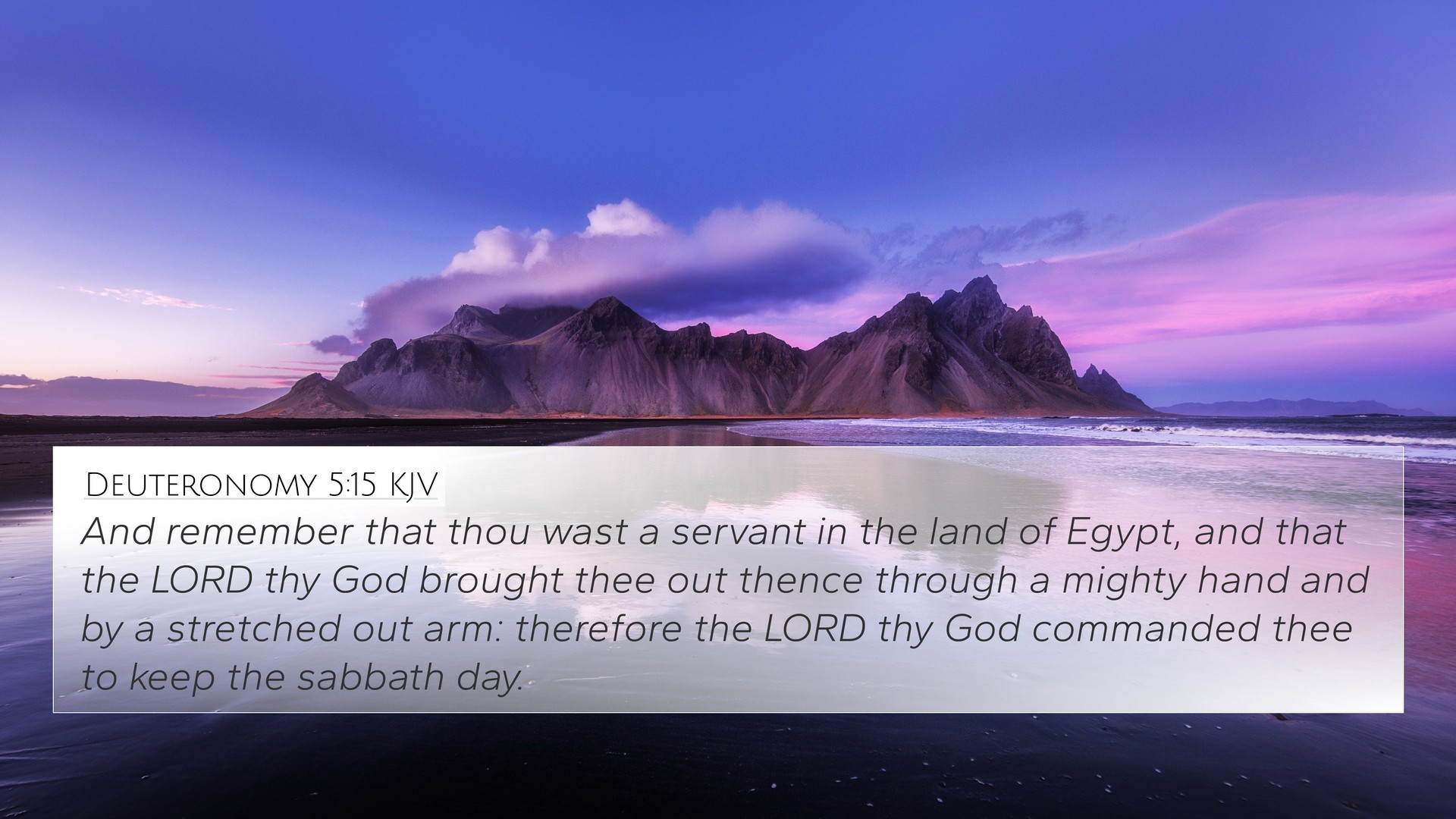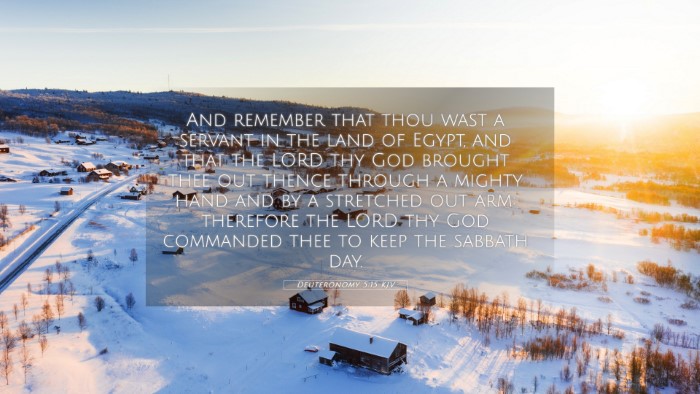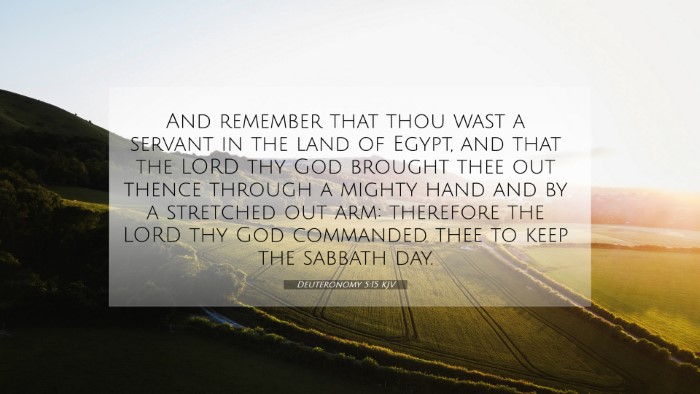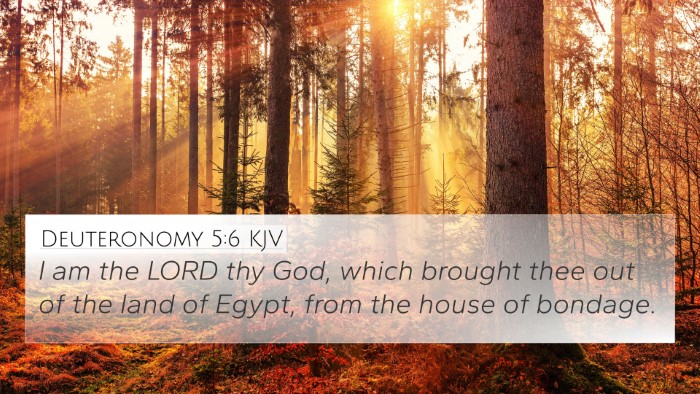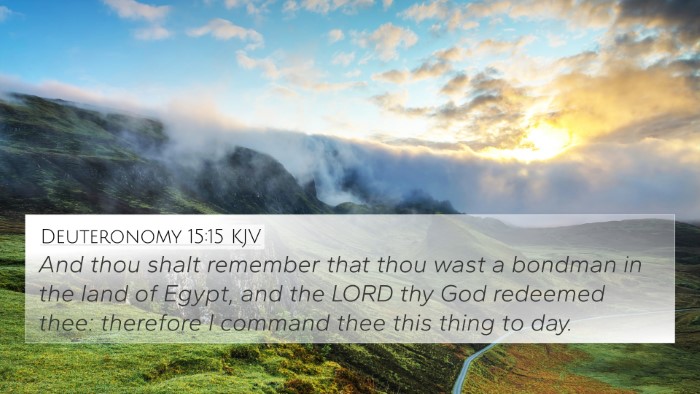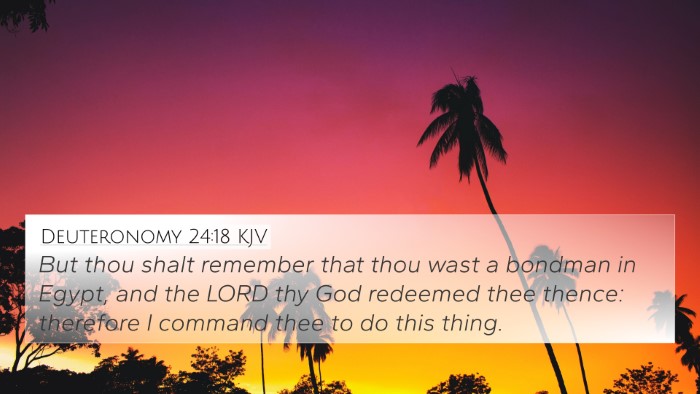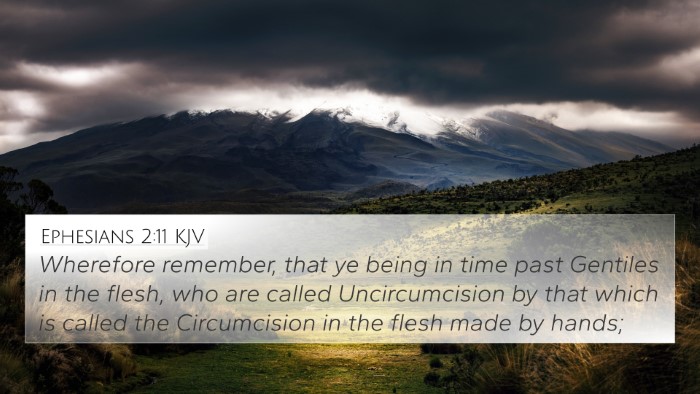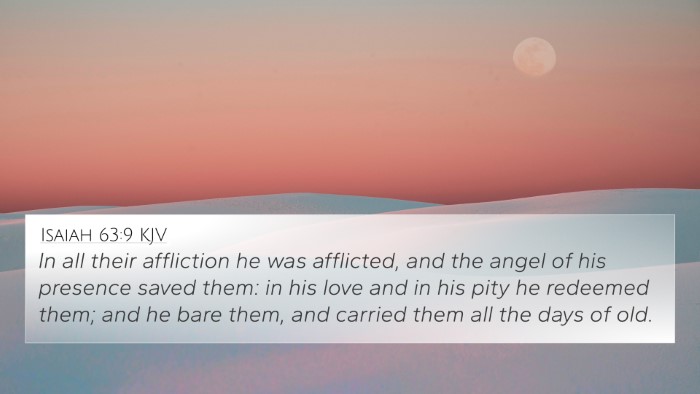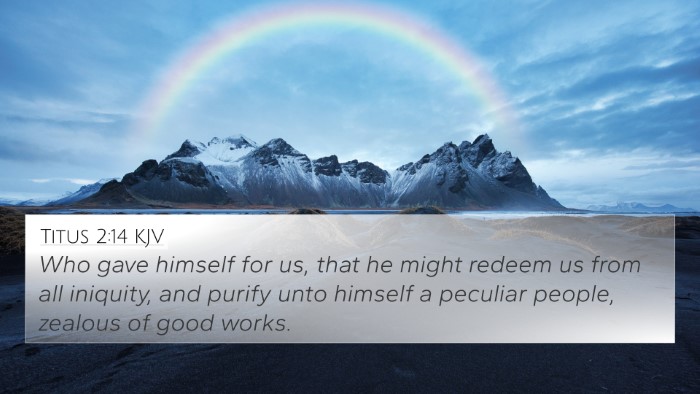Understanding Deuteronomy 5:15
Bible Verse: "And remember that you were a slave in the land of Egypt, and the Lord your God brought you out from there with a mighty hand and an outstretched arm. Therefore the Lord your God commanded you to keep the Sabbath day." (Deuteronomy 5:15)
Meaning and Interpretation
This verse serves as a significant reminder of God's deliverance of the Israelites from slavery in Egypt. It emphasizes the importance of remembering their suffering and the grace they received from God, which underscores a key theme in biblical theology: the covenant between God and His people.
Contextual Analysis
Matthew Henry notes that this commandment to observe the Sabbath is rooted in the historic experience of the Israelites. The remembrance of their former bondage serves to enrich their appreciation for God's redemptive power. Albert Barnes adds that the act of resting on the Sabbath is not just a physical necessity but a spiritual one, allowing God's people to reflect on His deliverance and grace.
Thematic Connections
- Divine Deliverance: The verse connects to themes of liberation in the Bible, such as Isaiah 61:1 and Luke 4:18, which speak of freedom and proclamation of good news.
- Covenant Relationship: The mention of God's command highlights the covenant relationship He has with His people, which is echoed in Exodus 20:2-3.
- Rest and Reflection: Sabbath rest symbolizes both physical and spiritual rejuvenation, relevant in Hebrews 4:9-10.
- Gratitude: The call to remember suggests an attitude of gratitude that resonates in Psalms, particularly Psalm 103:2, which encourages remembering God's benefits.
Comparative Bible Verse Analysis
This verse can be cross-referenced with numerous related scriptures that strengthen its teachings. Notable references include:
- Exodus 20:2: "I am the Lord your God, who brought you out of the land of Egypt, out of the house of bondage."
- Deuteronomy 5:12-14: Discuss the Sabbath and its purpose for rest and remembrance.
- Jeremiah 17:21-22: A warning against working on Sabbath and profaning it.
- Mark 2:27: Where Jesus teaches that the Sabbath was made for man, not man for the Sabbath.
- Hebrews 4:9-10: Speaks of a Sabbath rest that remains for the people of God.
- Psalms 104:23: Illustrates the rhythm of creation, where man goes out to his work.
- Isaiah 58:13-14: Challenges the Israelites to find delight in the Sabbath.
Insights from Commentaries
Adam Clarke elaborates on how the observance of the Sabbath not only serves as a reminder of God's past actions but also as an expectation of future obedience. The promise contained within honoring the Sabbath day affirms the peace and restoration that comes from resting in God's presence.
Practical Application
For modern believers, Deuteronomy 5:15 invites reflection on what it means to remember our own experiences of God’s saving grace. It is an encouragement to maintain a rhythm of rest and reflection in our lives, which can lead to spiritual rejuvenation and growth.
Conclusion
In summary, Deuteronomy 5:15 challenges believers to recognize their past bondage and appreciate the freedom provided by God's mighty hand. It highlights the importance of rest and remembrance as essential components of faith that connects not only to personal spirituality but also to the broader narrative of the Bible. By understanding these connections between Bible verses and engaging in comparative Bible verse analysis, believers are better equipped to make meaningful connections across the scripture.
Explore Further
If you want to dig deeper into the connections and thematic ties present in the Bible, it is beneficial to engage in tools for Bible cross-referencing. Utilizing a Bible concordance or a cross-reference Bible study guide can help in discovering the rich tapestry of related verses that support and expand upon the teachings found in Deuteronomy 5:15.
Cross-Referencing Guidance
Understanding cross-references can enrich one’s personal study and provide significant insight into how different scriptures relate and reinforce each other. Here are some tips on how to find cross-references in the Bible:
- Use a Bible concordance to look for keywords or phrases.
- Consult a study Bible that includes cross-references alongside verses.
- Engage in thematic studies by identifying a theme (such as deliverance) and finding verses associated with it.
- Group verses by biblical books to see how authors build on similar ideas (e.g., links between the Prophets and Apostolic teachings).
